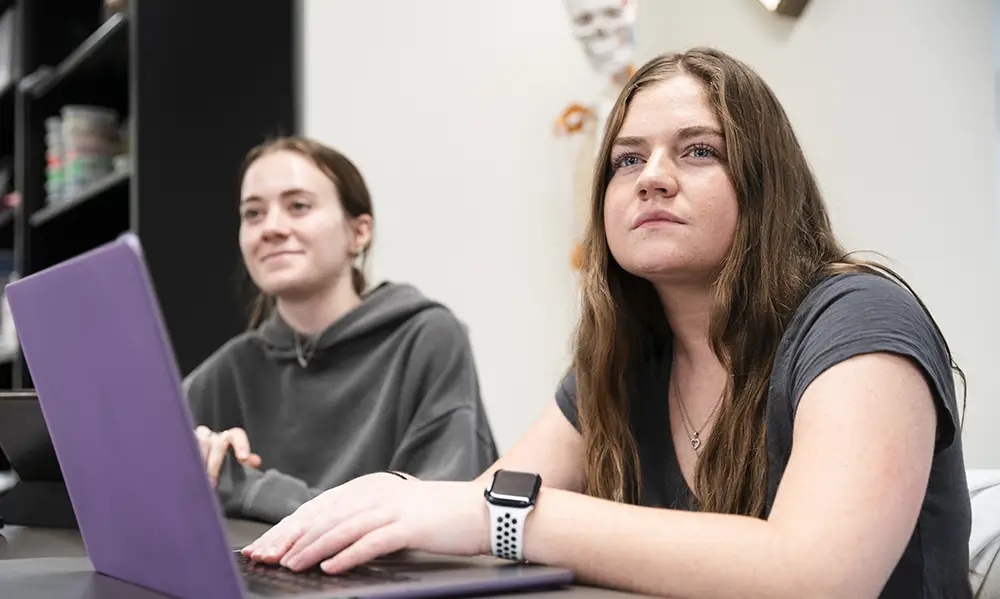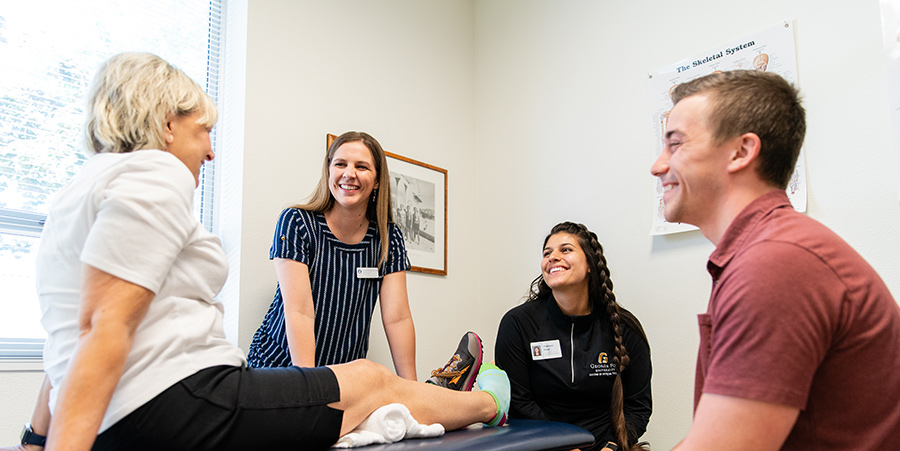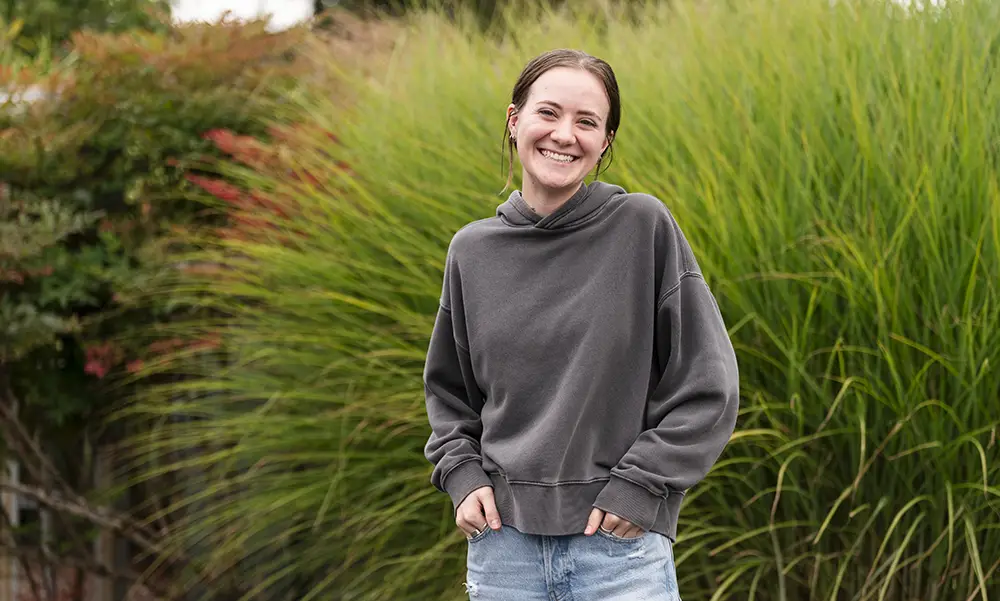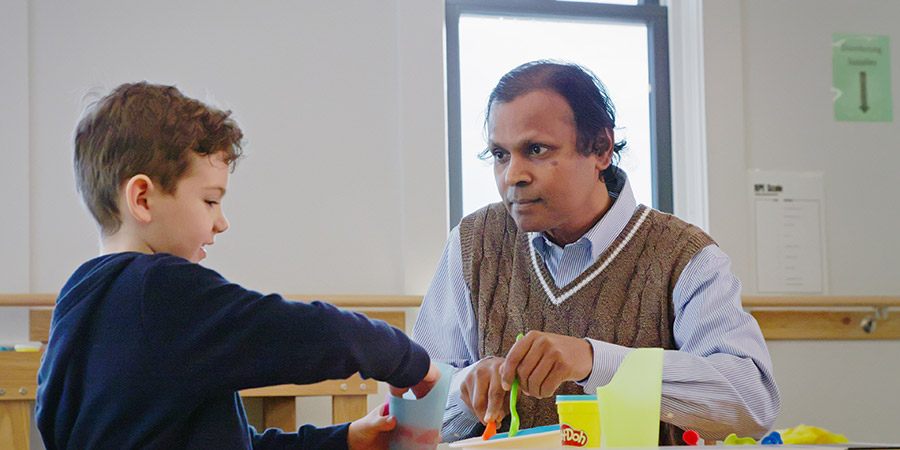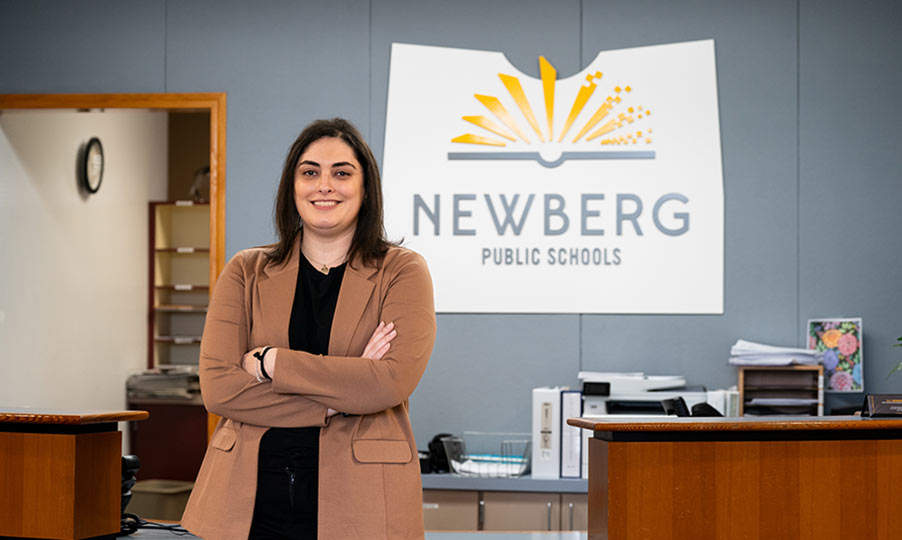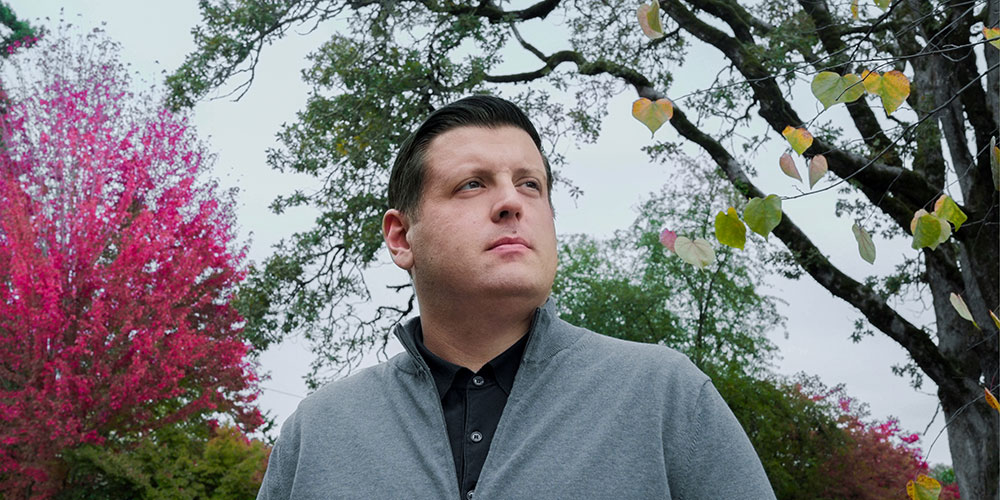
Destiny Road
by Sean Patterson
A car accident at age 16 leaves Trevor St. Clair dependent on others – and leads to an occupational therapy career he never saw coming
Trevor St. Clair recalls the day his life changed forever. He was 16 and blissfully making his way to his destination when suddenly his car was T-boned and he found himself pinned inside the vehicle, unable to move.
It took the jaws of life to remove him from the wreckage. Medics transferred him to the hospital, where he learned he had bilateral hip fractures, leaving him wheelchair-bound for nine weeks. Physical therapy treatments helped, but there was still something missing from his recovery regimen.
“I was able to rehab strength-wise, but I started noticing some issues I was having around the house,” he recalls. “I had difficulties in the kitchen, I had difficulties getting in and out of different rooms. I struggled with basic activities of daily living. If the phone rang, I had a hard time reaching it. So I noticed all the things that PT wasn't addressing, and I told myself, ‘There has to be some way to address these things.'”
He didn’t know it then, but the very accident that temporarily stole his mobility and left him dependent on others would be the very thing that served as the inspiration for a career.
A Career Born of Tragedy
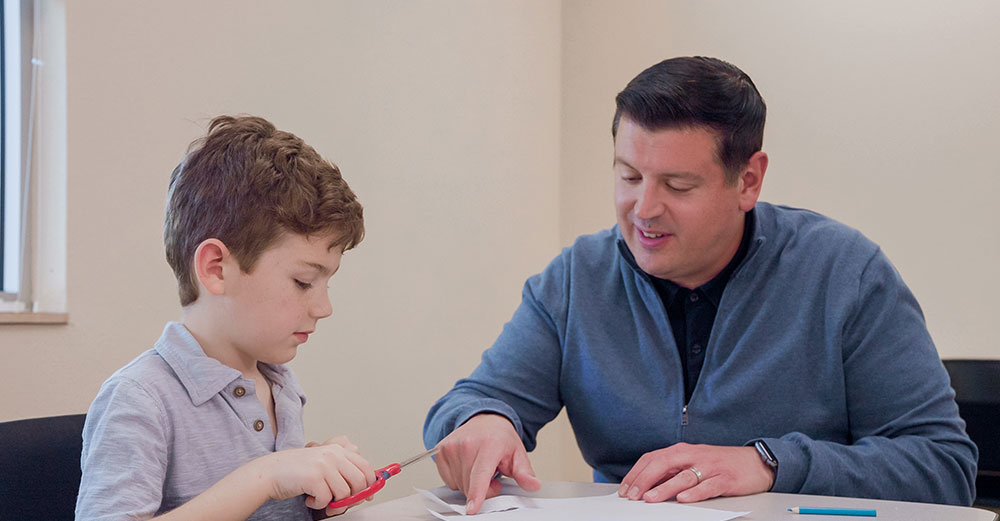
St. Clair, an associate professor of occupational therapy at George Fox University, made a life-changing discovery after the incident: Occupational therapy – the practice of helping people overcome the obstacles that interfere with everyday living – changes lives.
“It was right there and then I found out what OT does, and I decided that’s what I wanted to do,” he says. “I wanted to help people who had experienced the same things I had experienced – to help them do the things they needed to do to live an independent life.”
His newfound calling led him to the University of Pittsburgh, where he earned a master’s degree in occupational therapy. He later earned a doctorate in the discipline from Chatham University, also in Pittsburgh, and his career was launched in Charlotte, North Carolina, where he worked in the school systems for five years as a school-based occupational therapist. His work at the time primarily focused on assisting children on the autism spectrum, working with them on everything from writing to sensory integration to behavioral issues.
His desire to keep his skills sharp as a generalist led to opportunities to work in acute care in the hospital system, focusing primarily on orthopedic patients who had recently had hip or knee replacements.
Care for the Client
All the while, St. Clair stayed true to the reason he got into the field in the first place – to demonstrate to clients that someone cares and is there to help get them through this trying season in their lives. That commitment begins with the physical realm but extends to both the emotional and personal as well.
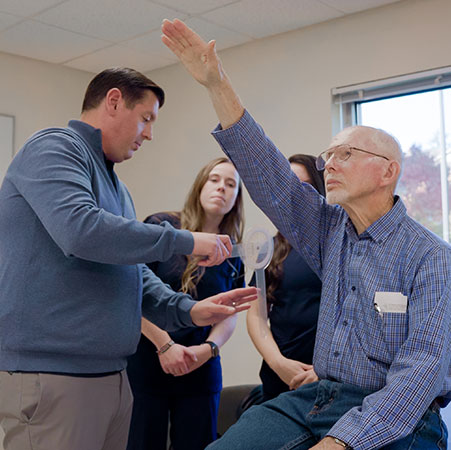
"The best way that I’ve found to establish a connection with a patient or a client is to build a rapport with them,” he says. “A lot of times I use a technique called pacing and leading where I meet them where they are. I find something that they're interested in and we start talking about that. Then, the next time I see them, I'll bring it up again.”
That kind of rapport allows St. Clair to really get to know a person – from their favorite baseball team to finding out what restaurants they recommend. It’s that relational element of OT practice that makes for a bittersweet experience.
“You really get to know someone, which is great, but I have had a few patients cry during the discharge planning session when it's time for them to essentially graduate from OT and move on,” he says. “A lot of times they’re sad because the social connection between the therapist and the patient has been such a big part of their life and their recovery that I think it’s hard for them when that goes away.”
The Path to Higher Education
Today, St. Clair is educating the next generation of OT clinicians – a career change that came about, fittingly, through the school systems he used to work with. While working on an assistive technology team for one of the school districts, a local college asked if he’d be interested in doing a guest lecture on the different types of assistive technology being used in elementary schools through high schools. He obliged – and discovered a new calling.
“We brought some equipment in, did a lab, and the students seemed to really enjoy it,” he says of the experience. “Seeing them playing with the equipment and learning things made me realize that this may be something that I want to do on a more full-time basis.”
Soon after, the same college offered him a teaching position. He took them up on the offer and became the institution’s academic fieldwork coordinator. A new career was launched.
St. Clair arrived at George Fox in 2023, motivated to join the university because of its faith commitment, emphasis on service, and desire to address the glaring lack of OTs in the region. “There is a shortage of occupational therapists in Oregon, and I feel like I'm doing my part to help with that and to expand the field,” he says. “I believe it’s important to have a lasting effect on anything that you do, and I think through the students, what I’m doing now is going to have a ripple effect that will go on for years and years to come.”
As for his teaching style, he employs the same approach he did as a practitioner, getting to know each charge under his care by listening to them and getting to know them on a personal level.
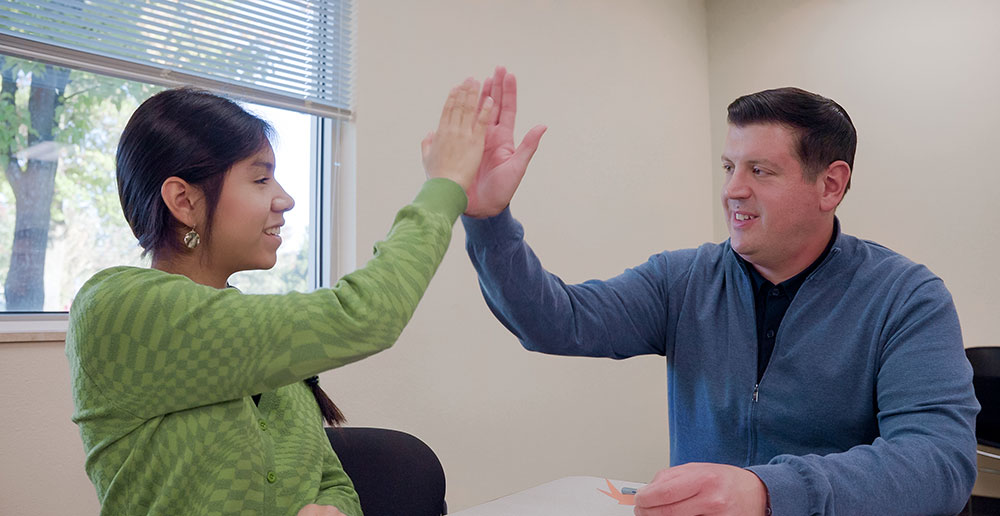
“I want the student to feel comfortable being able to tell me any of the issues that they're experiencing, but I also want to let them know about issues that may come up within the field, whether it’s within their OT education or as an entry-level generalist out in the field."
“I want students to know that the faculty here is vested in them becoming not only great OT practitioners, but becoming great people as well.”
Taking OT ‘to the Next Level’
One way the program will prepare students is through its 14-week doctoral capstone experience, which will allow them to work directly with organizations and community clinics.
“By the time our students graduate, I want them to be excellent clinicians, but I also want them to be excellent scholars, and I want them to be determining new information, creating evidence, and then informing the field of occupational therapy,” he says. “In the same way that I want to take students to the next level, I want them to take the field of occupational therapy to the next level.”
Ultimately, St. Clair wants his students to experience what he enjoyed most as a practitioner – the role of being a key player in the recovery process.
“For me, the most rewarding part of occupational therapy is when a patient comes to me and it’s the best part of their day,” he says. “They're excited to come in and excited to work on their goals because they’re meaningful to them. Just being able to make that kind of difference in someone’s day and their life is really what OT is all about, and that’s what I’m excited for our students to discover.”

